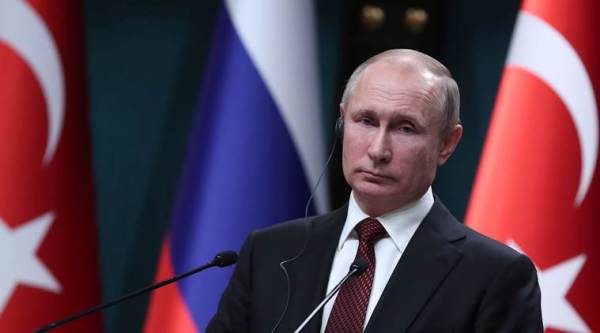Russia to hold biggest war games in nearly four decades
The manoeuvres will take place at a time of heightened tension between the West and Russia, which is concerned about what it says is an unjustified build-up of the NATO military alliance on its western flank.

Russian President Vladimir Putin has been leading the talks on Iran nuclear deal after US backed out(Source-REUTERS/file)
Russia will next month hold its biggest war games in nearly four decades, Defence Minister Sergei Shoigu said on Tuesday, a massive military exercise that will also involve the Chinese and Mongolian armies. The exercise, called Vostok-2018 (East-2018), will take place in central and eastern Russian military districts and involve almost 300,000 troops, over 1,000 military aircraft, two of Russia’s naval fleets, and all its airborne units, Shoigu said in a statement.
The manoeuvres will take place at a time of heightened tension between the West and Russia, which is concerned about what it says is an unjustified build-up of the NATO military alliance on its western flank. NATO says it has beefed up its forces in eastern Europe to deter potential Russian military action after Moscow annexed Ukraine’s Crimea in 2014 and backed a pro-Russian uprising in eastern Ukraine.
1m 43s

Britain urges harsher EU sanctions against Russia
Britain on Tuesday will call for the European Union to increase sanctions against Russia, saying the bloc had to stand "shoulder to shoulder" with the United States, which hit Moscow with new economic curbs this month.
The war games, which will take place from Sept. 11-15, are likely to displease Japan which has already complained about what it says is a Russian military build-up in the Far East. Japanese Prime Minister Shinzo Abe is due to attend an economic forum in Vladivostok during the same period.
Shoigu said the war games would be the biggest since a Soviet military exercise, Zapad-81 (West-81) in 1981.
“In some ways they will repeat aspects of Zapad-81, but in other ways the scale will be bigger,” Shoigu told reporters, while visiting the Russian region of Khakassia.
“In some ways they will repeat aspects of Zapad-81, but in other ways the scale will be bigger,” Shoigu told reporters, while visiting the Russian region of Khakassia.
The Russian Ministry of Defence has said that Chinese and Mongolian military units will also take part in the exercise.
“A MORE ASSERTIVE RUSSIA”
When asked if the cost of holding such a massive military exercise was justified at a time when Russia is faced with higher social spending demands, Kremlin spokesman Dmitry Peskov said such war games were essential.
“The country’s ability to defend itself in the current international situation, which is often aggressive and unfriendly towards our country, means (the exercise) is justified,” Peskov told reporters on a conference call.
When asked if China’s involvement meant Moscow and Beijing were moving towards an alliance, Peskov said it showed that the two allies were cooperating in all areas.
China and Russia have taken part in joint military drills before but not on such a large scale. NATO spokesman Dylan White said that Russia had briefed the alliance on the planned exercise in May and that NATO planned to monitor it. Russia had invited military attaches from NATO countries based in Moscow to observe the war games, an offer he said was under consideration.
“All nations have the right to exercise their armed forces, but it is essential that this is done in a transparent and predictable manner,” White said in an emailed statement.
“Vostok demonstrates Russia’s focus on exercising large-scale conflict. It fits into a pattern we have seen over some time: a more assertive Russia, significantly increasing its defence budget and its military presence.” Shoigu this month announced the start of snap combat readiness checks in central and eastern military districts ahead of the planned exercise.
“Imagine 36,000 armoured vehicles – tanks, armoured personnel carriers and armoured infantry vehicles – moving and working simultaneously, and that all this, naturally, is being tested in conditions as close as possible to military ones,” agencies quoted Shoigu as saying on Tuesday.












































No hay comentarios:
Publicar un comentario